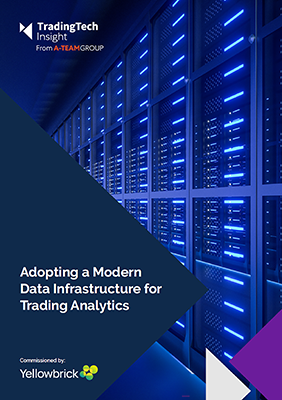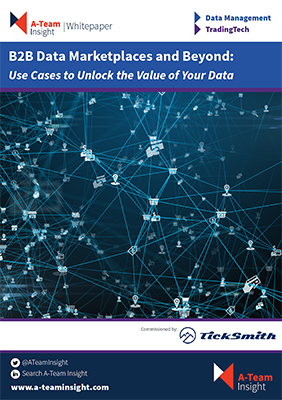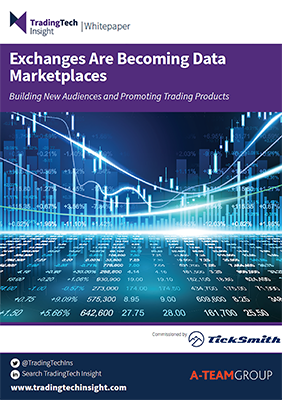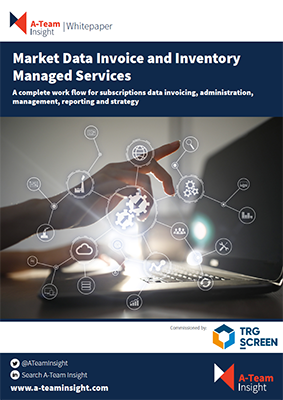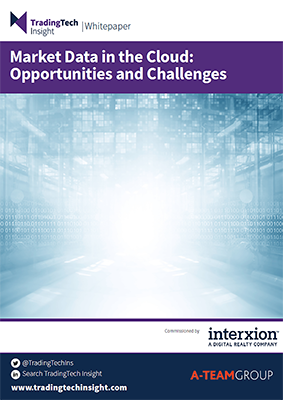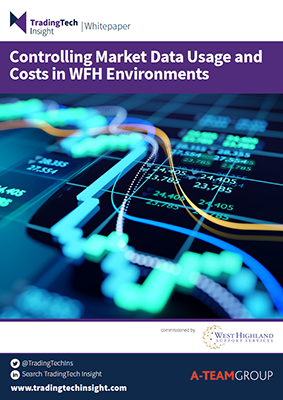TradingTech Insight White Paper
Adopting a Modern Data Infrastructure for Trading Analytics
As they seek an edge in their trading and investment activities, hedge funds and other sophisticated trading firms are looking to harness new sources of insight that can allow them to identify and exploit emerging market and industry opportunities. But many organizations are saddled with a disconnected sprawl of legacy systems that are unable to...
Benefiting from Advanced Execution in US Treasury Markets
The expanded footprint of electronic non-bank liquidity providers (NLPs) and established broker/dealers, as well as the proliferation of electronic aggregation platforms, are all adding complexity to fixed-income markets, which as a result are starting to resemble established electronic markets like equities and foreign exchange. For market participants, this has added to the challenge of sourcing...
B2B Data Marketplaces and Beyond
Financial institutions and corporations often generate huge quantities of data as a by product of their core activities. This data – details of historical transactions, customer interactions and metadata for referring to instruments, counterparties or entities – can provide valuable insights for industry participants, and form the basis of a meaningful data sales business. But...
Exchanges Are Becoming Data Marketplaces
Exchanges and other trading venues have long derived revenue from sales of their data; in some cases they operate substantial businesses based around sales of their real-time quotes and other market data services. But few are well set up to deal with growing demand for other datasets they may generate from their core activities, such...
Mitigating Compliance Risk by Matching Application Usage to Data Licensing Obligations
As financial institutions consume more market data from more sources than ever before, the task of administering external data services is growing both in complexity and scale. At the same time, data services are increasingly consumed by applications rather than humans, and these applications often consume more data than humans and produce derived data. As...
Market Data Invoice and Inventory Managed Services
Financial institutions are subscribing to an ever-growing list of information services in their efforts to keep abreast of increasingly complex global markets. This is adding to the burden of managing relationships with existing data vendors, whose licensing agreements and invoices are also growing in complexity. Firms’ appetite for cloud-delivered services and the trend toward working...
Market Data in the Cloud: Opportunities and Challenges
Financial institutions are buying into the promise that the scalability and elasticity of cloud solutions will prove to be more cost-effective than on-premise implementations. As firms migrate what they can of their technology infrastructures to the cloud, they are starting to include market data delivery and ingestion systems – long considered too critical to be...
Revenue Management for Exchanges and Other Financial Data Providers
Monetisation of market data and other financial information has become a major revenue stream for exchanges and electronic trading venues. But these organisations are often dependent on third parties – often market data vendors – for the final connection to end-consumers of their data products. This can make establishing and maintaining direct client relationships challenging....
Controlling Market Data Usage and Costs in WFH Environments
The Covid-19 pandemic has transformed the way financial services firms operate: with staff dispersed across numerous alternative sites or working from home, and many still requiring access to fee-liable market data and other financial information services in order to function. Data managers are struggling to control access to this data – facing the risk of...
Financial Markets Operations Response to COVID-19: Best Practices for Working from Home
The COVID-19 pandemic is disrupting all walks of life, and carries with it implications for society beyond even the obvious and immediate health impact. Business is being hit across the board, with many corporations sending staff home in an effort to keep them both safe and working. It’s clear that firms can’t rely on a...


